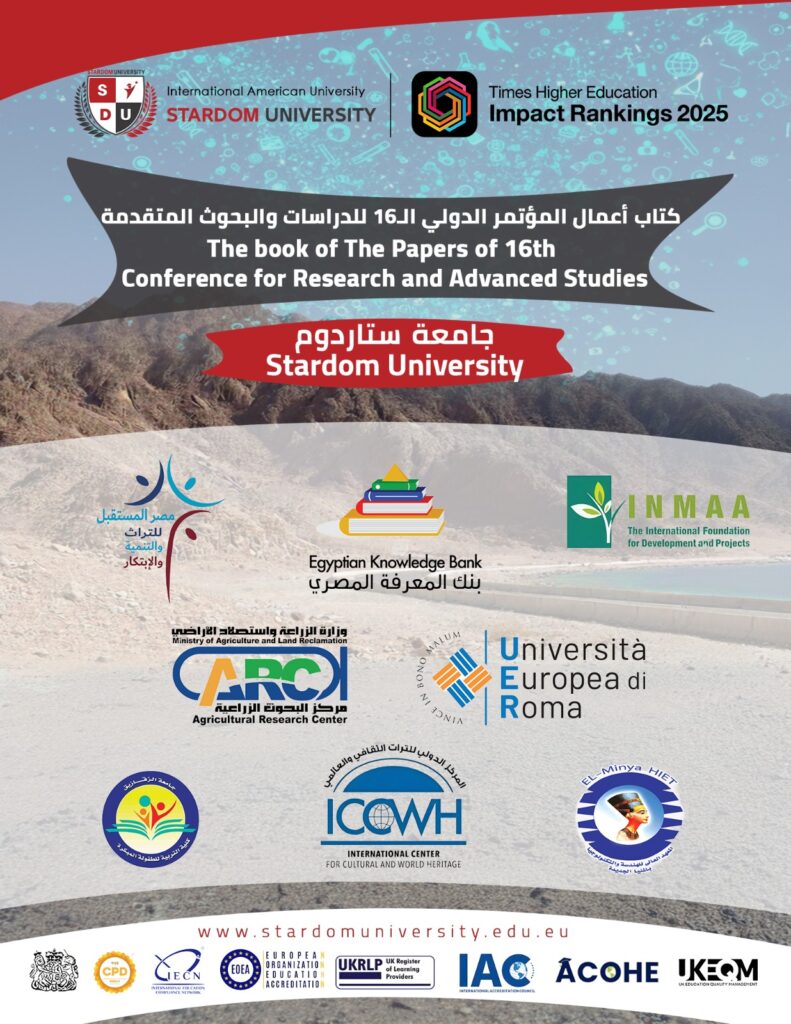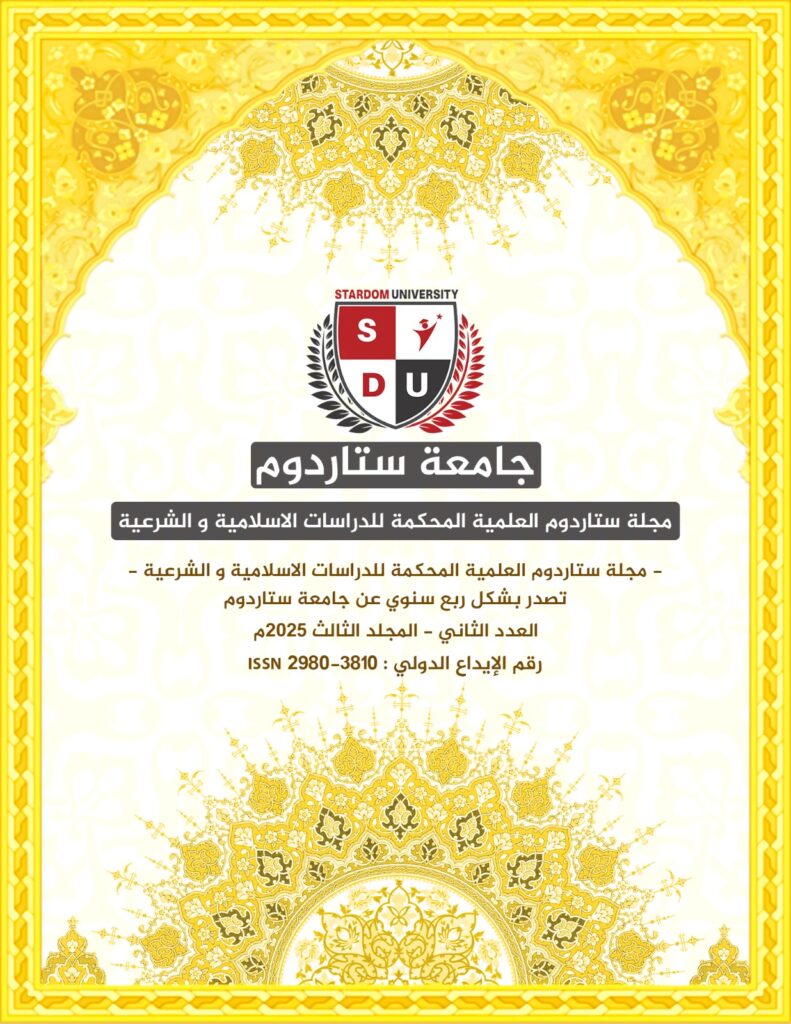- Stradom Journal
- Volume :1st Issue- 2nd Volume 2024
- Stradom Journal
- Volume :1st Issue- 2nd Volume 2024
تغليب المؤنث على المذكر في القرآن الكريم
This research deals with a purely linguistic issue that is rarely discussed in language books, rather than other things. This is the issue of the feminine predominance over the masculine. The researcher has tried to study this issue in light of Qur’an’s use of it.
This study consists of an introduction and two sections. As for the introduction, the researcher discussed the importance of language in interpreting the Qur’an, the necessity of this for the interpreter, and the scientists emphasis on this.
Then, through the first section, he explained the definition of the issue of predominance in Qur’an, starting with the linguistic and terminological definition concept of predominance, and passing through an explanation of the origin of it, in the Arabic language with an explanation of the reason for that, and ending with a mention of its most important types. The researcher explained all of these accompanied by examples that indicate it, as its obligatory in Scientific research method.
As for the second section, the researcher devoted it, for studying examples of situations in which the feminine prevailed over the masculine.
The researcher discussed three examples through which the reason for the dominance of the feminine over the masculine emerged, along with an explanation of the effect that appeared accordingly in the meaning. At the end of the research, the he reached a number of results, as following:
- The basic principle is that the masculine has predominance over the feminine in the Qur’an, and the feminine has not prevailed over the masculine except in a few places.
2 – There are two types of predominance: One is real verbal, another is figurative, the first is agreed upon, and the other is disputed.
- The dominance of the feminine over the masculine in Qur’an was for a rhetorical and secret purpose intended by the speaker – Glory be to Him.
I ask Allah, Lord of the Noble Throne, to accept this effort from me with good acceptance, and to record a benefit in it in the first, just as I ask Him to record a reward for me in the Hereafter, for He does not waste the reward of one who does good deeds.





